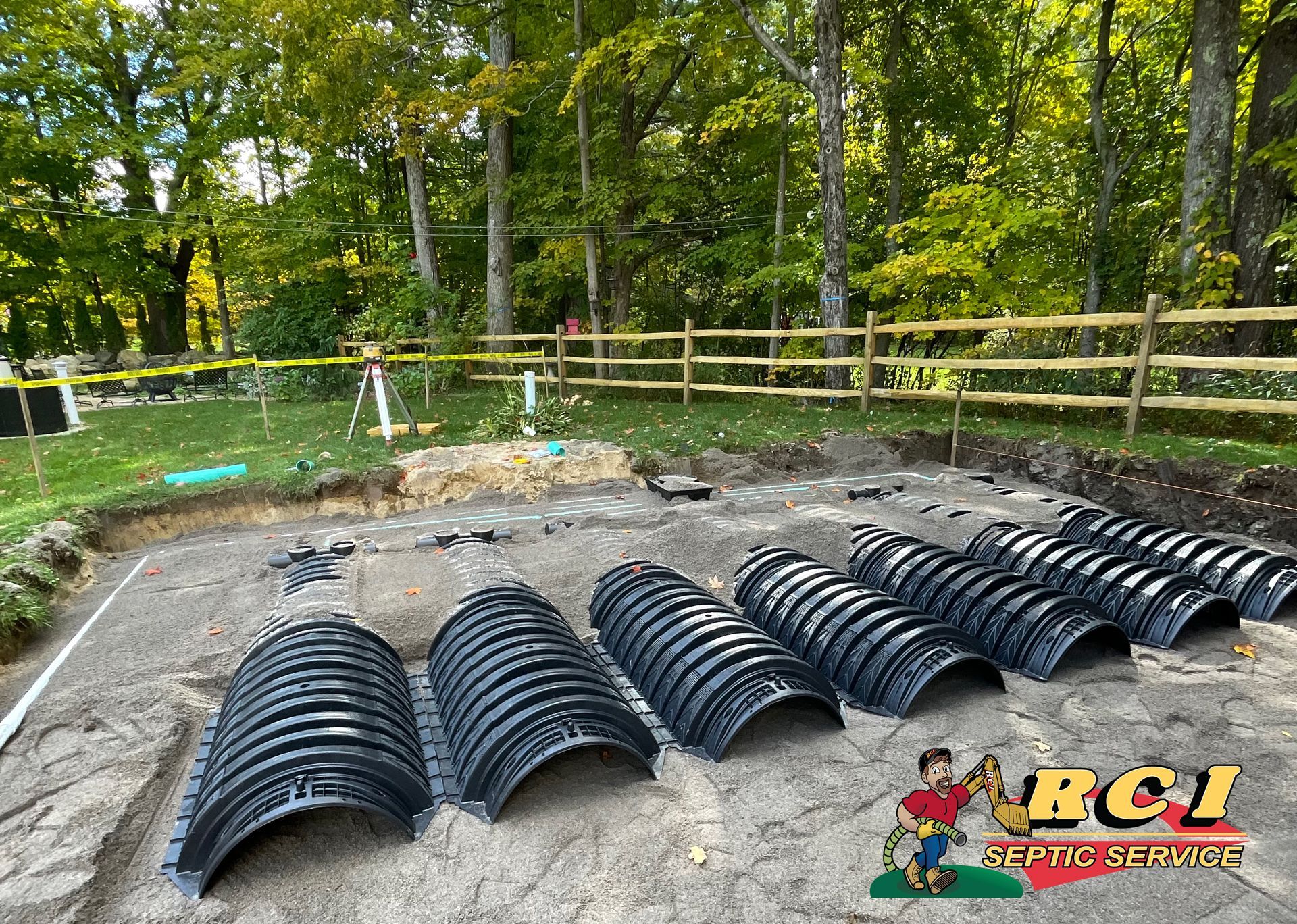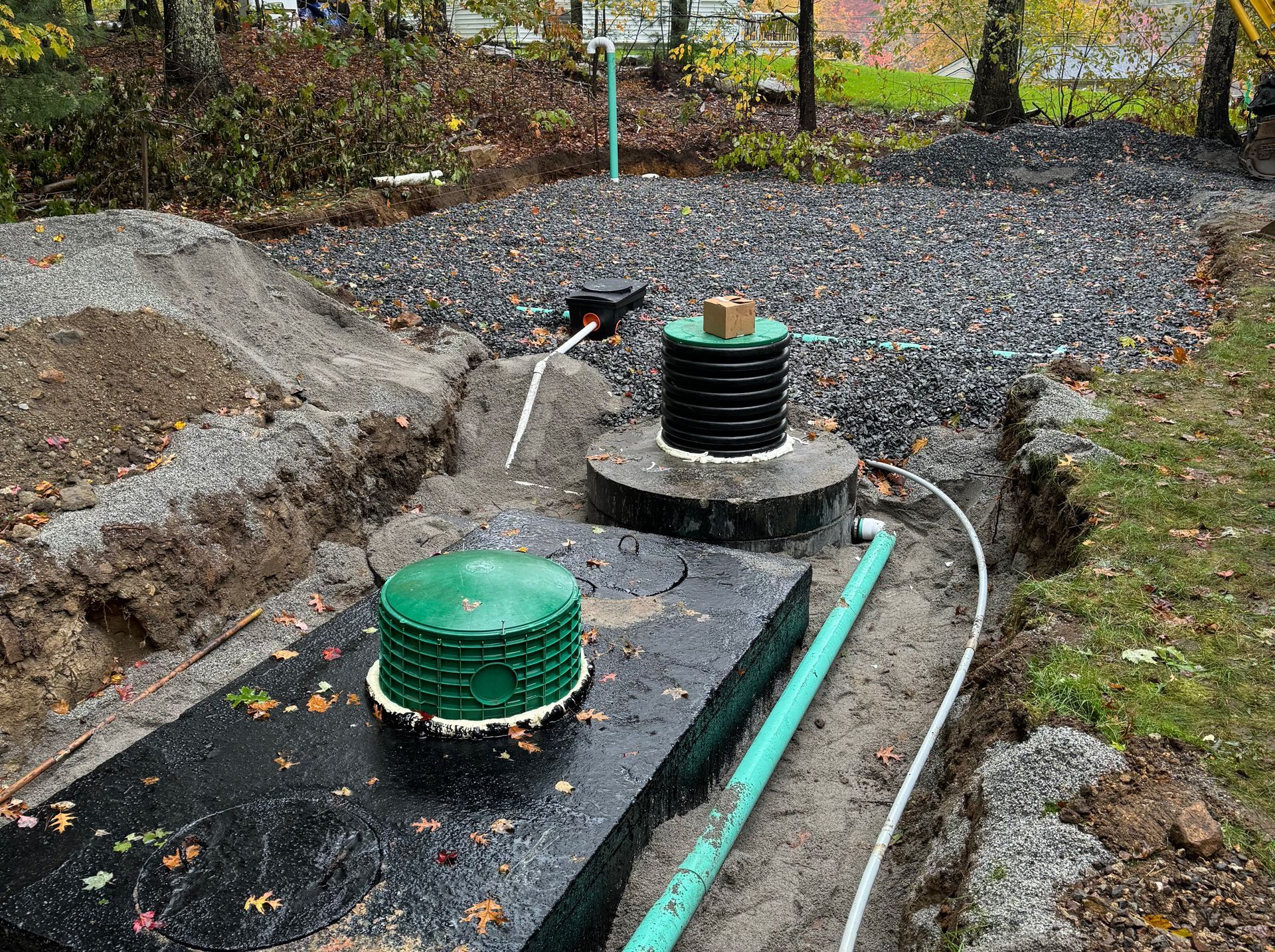How Long Should a Septic Tank Last? Expert Insights & Tips
How long should a septic tank last? Generally, septic tanks last between 20 and 40 years, influenced by material, usage, and maintenance. In this article, we will explore the factors impacting septic tank longevity and provide tips for extending their lifespan.
Understanding Septic Tank Lifespan
Septic tanks generally last between 20 and 40 years, depending on several factors such as the material used, water table levels, soil acidity, the maintenance performed, and how long septic tanks last in relation to the septic tank’s lifespan.
The lifespan of a septic tank is significantly influenced by its construction material, with concrete tanks often providing the longest service life. Regular maintenance and mindful usage can also extend the lifespan of your septic system significantly.
Each type of septic tank material has its characteristics and longevity. Concrete, steel, and fiberglass are the most common materials used, each with distinct advantages and challenges. Understanding these differences is essential for making an informed decision when installing a new septic tank or maintaining an existing one.
Concrete Septic Tanks
Concrete septic tanks are renowned for their durability, often lasting between 40 and 100 years with proper maintenance. On average, these tanks have a lifespan of around 40 years, but with regular inspections and maintenance, they can serve much longer. The robust nature of concrete makes it a preferred choice for many homeowners seeking long-term reliability.
However, it’s crucial to conduct regular inspections to prevent issues arising from ground shifting. Concrete tanks, despite their strength, can develop cracks or other structural problems if the surrounding soil conditions change significantly. Maintaining your concrete septic tank in good condition requires a proactive approach.
Steel Septic Tanks
Steel septic tanks are sturdy but generally do not last as long as concrete ones. They typically have a lifespan of around 15 to 20 years. The primary issue with steel tanks is their susceptibility to corrosion and rust, which can significantly reduce their longevity. Despite their initial robustness, these steel tank require more frequent inspections and maintenance to ensure they remain functional.
Due to their tendency to corrode, steel septic tanks are unsuitable for areas with high soil acidity or moisture levels. Homeowners with steel tanks must regularly maintain them to address rust issues before they escalate.
Fiberglass Septic Tanks
Fiberglass septic tanks offer a balanced solution, combining durability with resistance to corrosion. These tanks can last over 40 years with minimal maintenance. One of the key benefits of fiberglass tanks is their strong resistance to corrosion, which is a significant factor contributing to their lengthy lifespan.
Fiberglass tanks are lightweight and easier to install compared to concrete tanks. Despite their advantages, regular inspections are necessary to ensure they remain in good working condition. Their resilience to environmental factors makes them a reliable choice for many homeowners.
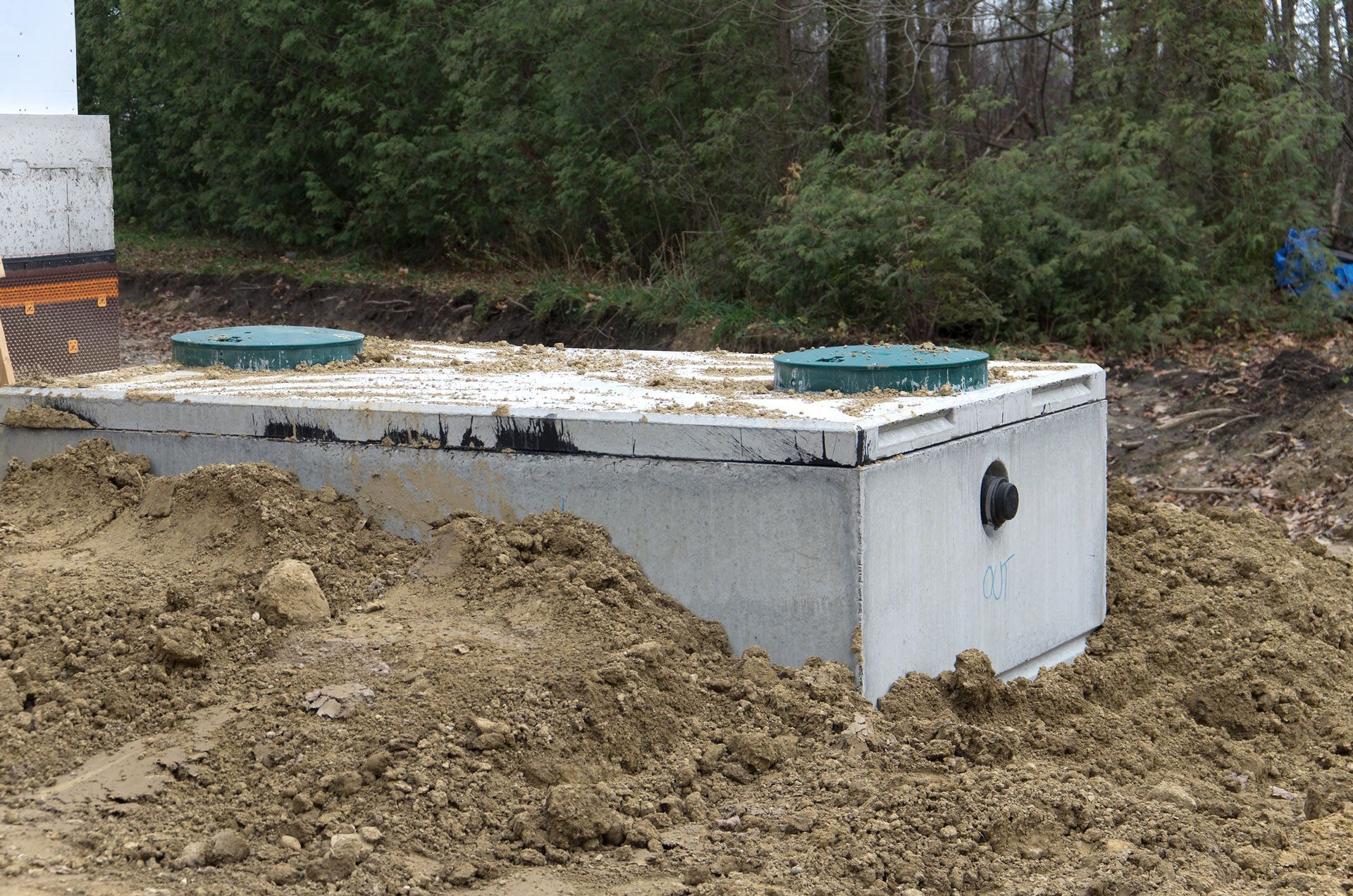
Factors Influencing Septic Tank Longevity
Several factors influence the longevity of a septic tank, including usage patterns, soil and groundwater conditions, and regular maintenance. How often you use your system, the type of soil it’s installed in, and the level of the water table can all play significant roles in determining how long your septic tank will last. Proper installation and ongoing care are crucial to maximizing the lifespan of your septic system.
Awareness of these factors allows for proactive steps in maintaining your septic tank. Tailoring maintenance schedules to your household needs and environmental conditions can significantly extend the life of your septic system.
Soil Type
The type of soil where your septic tank is installed can significantly affect its lifespan. Non-acidic or slightly alkaline soil is ideal because acidic soil can lead to corrosion and erosion, particularly in steel and concrete tanks. Homeowners in areas with highly acidic soil should consider regular inspections and more frequent maintenance to mitigate these effects.
In areas with acidic soil, using plastic or coated concrete tanks can offer better longevity. Correct excavation and compaction during installation are crucial for the longevity of a septic tank. Testing the soil before installation helps in choosing the right tank material, thereby improving its longevity.
Water Table Levels
High groundwater levels can pose challenges for septic systems, particularly in areas prone to flooding. When the water table is high, it can hinder the dispersion of sewage, increasing the risk of backups and potentially shortening the lifespan of the septic tank. Homeowners in flood-prone areas must be especially vigilant about maintaining their septic systems to prevent these issues.
Preventive measures, such as installing the septic tank away from flood-prone areas and ensuring proper drainage, help mitigate risks associated with high water tables. Monitoring the impact of groundwater on your septic system through regular inspections is essential.
Usage Frequency
The frequency of use is another critical factor influencing the lifespan of a septic tank. More frequent use, such as in larger households, can shorten the lifespan of a septic tank due to the increased volume of water and waste. However, proper maintenance can help mitigate the effects of heavy usage and keep your system running smoothly.
Avoiding non-biodegradable items and excessive water usage can significantly extend the life of your septic tank. Regular maintenance, including pumping and inspections, is crucial to managing the impact of high usage on your septic system.
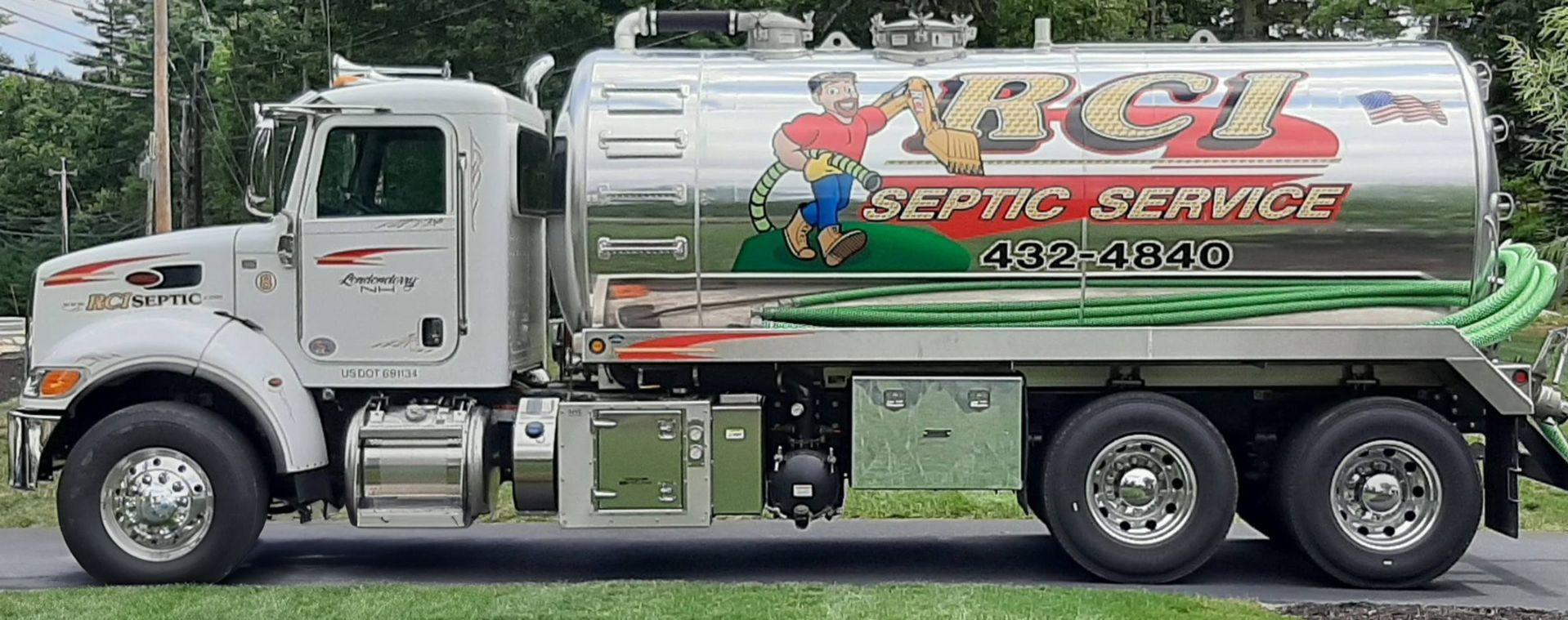
Importance of Regular Maintenance
Regular maintenance is essential for extending the lifespan of a septic tank. Proper care, including routine pumping and periodic inspections, helps prevent clogs and system failures. Using biodegradable products also supports a healthier septic system by maintaining the balance of bacteria necessary for efficient waste breakdown.
Mindful usage combined with regular maintenance can significantly extend the lifespan of your septic system. Adhering to maintenance schedules and addressing issues promptly helps avoid costly repairs or replacements.
Routine Pumping
Routine pumping is a key aspect of septic system maintenance. We suggest annual pump-outs for households of 5 or more, pump-outs every 2 years for households of 3-4 individuals, and pump-outs every 3 years for households of 1-2 people. Pumping your septic system regularly helps prevent the accumulation of solids, which can cause the system to fail. Monitoring the septic system regularly is crucial for early identification of malfunctions.
Engaging services like RCI Septic Service, which offers pumping, installation, repair, and replacement, ensures that your septic system remains functional and efficient. Routine maintenance is essential to prolong the life of the septic system and ensure its functionality.
Periodic Inspections
Periodic inspections are vital for maintaining a healthy septic system. These inspections help identify potential issues early, ensuring the system remains in good condition and preventing major problems. For tanks buried in solid clay-like soil, more frequent inspections and maintenance are recommended.
Regular inspections are particularly important for concrete septic tanks to avoid structural issues. By scheduling periodic checks, you can ensure your septic system functions properly and avoid costly repairs.
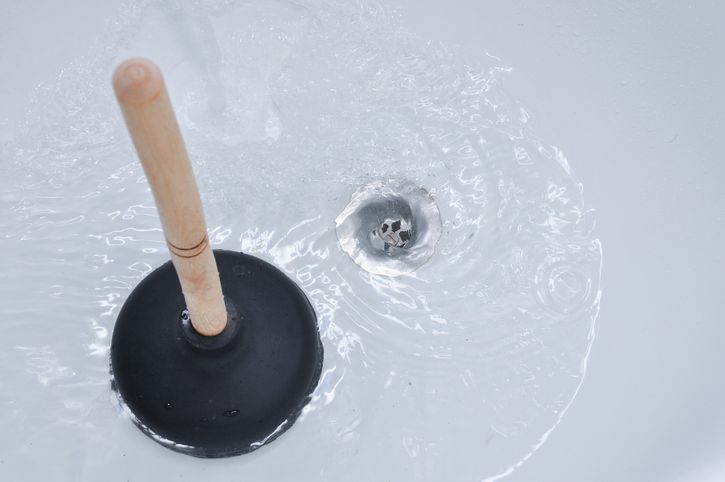
Signs Your Septic Tank May Be Failing
Recognizing the signs of a failing septic tank is crucial for timely intervention. Common signs include frequent backups, foul odors, and slow drainage. Regular inspections can help identify leaks and assess sludge levels before they lead to more severe problems.
Understanding these indicators can help you take prompt action, preventing groundwater contamination and costly repairs. Let’s delve into these common signs to help you keep your septic system in top condition.
Frequent Backups
Frequent backups in a septic system are a clear indicator of potential failure. An increase in backups often signals that the tank or the drain field is not functioning properly and requires urgent attention. Addressing these issues promptly can prevent more severe septic system failures and extend the life of the system.
Maintenance and periodic inspections are essential to prevent frequent backups and keep the system well-maintained. By staying proactive, you can avoid the inconvenience and expense of a failing septic system.
Foul Odors
Persistent foul odors near the septic area or within the home can indicate problems with the tank or drain field. Strong smells usually suggest a leak or plumbing issue that needs immediate attention. Continuous unpleasant smells around the drain field or inside the home may also suggest septic tank complications.
Promptly addressing these odors can prevent escalation into more significant issues. Regular inspections can help identify the source of the problem and ensure your septic system functions properly.
Slow Drains
Slow draining sinks and toilets are often a sign that your septic system is not functioning properly. This issue may be caused by blockages or an overfilled septic tank that requires immediate attention. Consulting a professional to evaluate your system can help identify and resolve the problem before it leads to further damage.
Promptly addressing slow drains can prevent costly repairs and extend the life of your septic system. Regular maintenance and inspections are vital to keeping your system working properly and avoiding frequent backups.
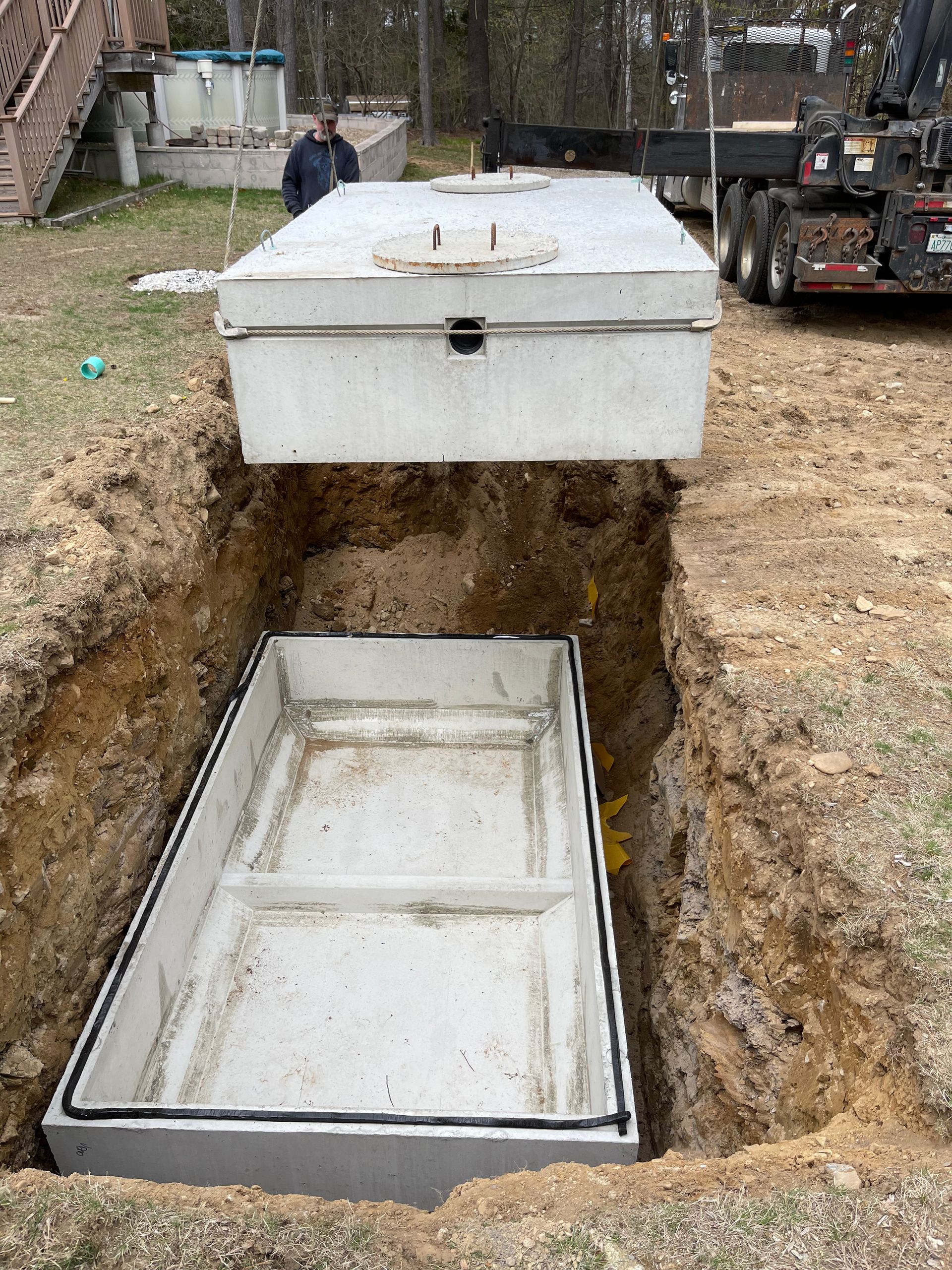
Prolonging the Life of Your Septic Tank
Prolonging the life of your septic tank involves proper installation, smart usage practices, and eco-friendly solutions. Ensuring your tank is installed correctly and maintained regularly can significantly extend its lifespan. These tips help avoid costly repairs and replacements, keeping your septic system functioning efficiently.
Effective management of your septic system can significantly enhance its longevity. Let’s explore some practical steps to help you achieve this.
Proper Installation
Proper installation is crucial for the long-term durability of a septic tank. Testing the soil and choosing the appropriate tank material can help ensure the system handles the household’s wastewater effectively. Selecting the right size for your septic tank is also essential to accommodate your household’s needs.
Working with experienced professionals, like those at RCI Septic Service, ensures that your septic system installation is done correctly and efficiently. Proper installation lays the foundation for a well-functioning and long-lasting septic system.
Smart Usage Practices
Smart usage practices can greatly extend the lifespan of your septic tank. Limiting water usage helps prevent overload and maintains the efficiency of the septic system. Avoiding the frequent use of garbage disposals can also reduce the solids in the tank, preventing clogs and backups.
Adopting these practices ensures your septic system remains well-maintained and functional for years. Regular maintenance and mindful usage go hand in hand in extending the lifespan of your septic system.
Eco-friendly Solutions
Implementing eco-friendly solutions is essential for maintaining a healthy septic system. Using biodegradable products helps maintain the balance of bacteria necessary for efficient human waste breakdown. Tailored eco-friendly solutions not only enhance septic system performance but also promote environmental sustainability.
These practices help prevent potential septic failures and extend the system’s lifespan. By focusing on eco-friendly solutions, you can ensure your septic system remains efficient and environmentally friendly.
Summary
Understanding the factors that influence the lifespan of a septic tank is crucial for homeowners. By choosing the right materials, maintaining regular upkeep, and recognizing signs of potential failure, you can ensure your septic system remains functional and efficient for many years. Concrete septic tanks offer the longest lifespan, while steel tanks require more frequent attention due to their susceptibility to rust. Fiberglass tanks provide a balance of durability and resistance to corrosion.
Regular maintenance, including routine pumping and periodic inspections, is essential to prevent issues and extend the life of your septic system. Smart usage practices and eco-friendly solutions also play a significant role in maintaining a healthy septic system. By following these guidelines, you can avoid costly repairs and ensure your septic system serves you well into the future.
Frequently Asked Questions
How often should I pump my septic tank?
Remember, regular inspection and pumping are crucial for maintaining a septic system. We suggest annual pump-outs for households of 5 or more, pump-outs every 2 years for households of 3-4 individuals, and pump-outs every 3 years for households of 1-2 people. Pumping your septic system regularly helps prevent the accumulation of solids, which can cause the system to fail.
What are the signs of a failing septic tank?
ButtonIf you're noticing frequent backups, unpleasant odors, or slow drainage, it's a clear sign that your septic tank might be failing. It's best to address these issues promptly before they worsen.
What factors affect the lifespan of a septic tank?
The lifespan of a septic tank primarily depends on the material it’s made from, the type of soil it’s in, water table levels, and how often it’s used. So keeping an eye on these factors can really help you extend its life!
How can I prolong the life of my septic tank?
To prolong the life of your septic tank, prioritize regular maintenance and use eco-friendly products. Smart usage practices, like avoiding excessive water use, also help keep it functioning well for years to come.
What services does RCI Septic Service provide?
RCI Septic Service provides a range of septic solutions, including pump-outs, installations, repairs, and replacements. They've got you covered for all your septic needs!

